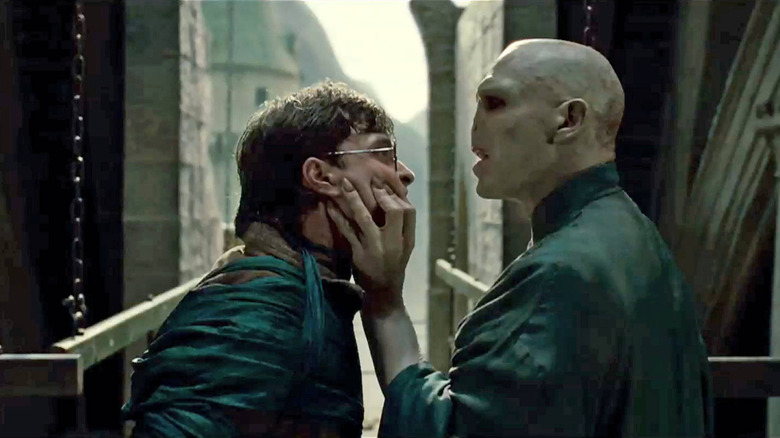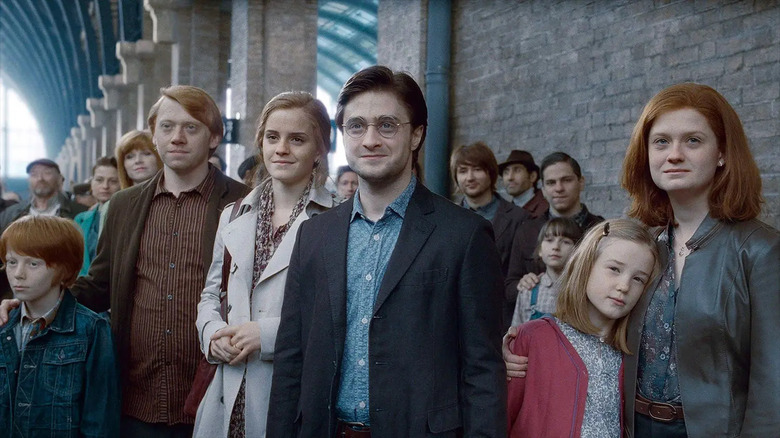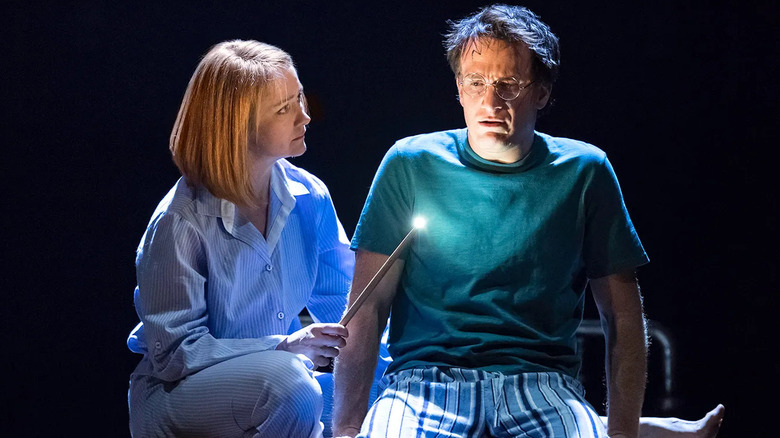Harry Potter: What Happened To The Boy Who Lived After Defeating Voldemort?
When she penned the first novel of the "Harry Potter" series — "Sorcerer's Stone," published in 1997 — Joanne Rowling created one of the most unforgettable and iconic protagonists in literary history, and his ascent to fame was swift. The books became one of the best-selling series of all time, and the movies followed suit. A theme park came into existence, and enterprising fans can tour the Warner Bros. studios where all of the movies were shot in Leavesden, England. So what is it about Harry Potter that captivated audiences all those decades ago?
Raised by resentful non-magical relatives, Harry doesn't even know he is a wizard until Rubeus Hagrid, the gamekeeper at Hogwarts School of Witchcraft and Wizardry, comes knocking to tell him that not only is he a wizard, he's a very famous one, having survived attempted murder at the hands of the Dark Lord Voldemort. (His parents, sadly, died in the process.) Throughout his years at Hogwarts, Harry fights Voldemort multiple times before skipping his final year of school to end the battle between himself and the Dark Lord once and for all. So what happens to Harry after Hogwarts? Luckily, Rowling penned both an epilogue and an entire play to show fans where Harry landed after defeating Voldemort.
Harry's story continues in the epilogue and The Cursed Child
The book and film's epilogue, set nineteen years after the Battle of Hogwarts, see Harry and his wife Ginny Weasley — sister to his best friend Ron — sending their kids off to Hogwarts. (Well, all but one; their daughter Lily is still too young to attend.) Their eldest son James has already been at Hogwarts for a few years, but their middle son, Albus Severus, is nervous about going, so Harry — now an Auror with the Ministry of Magic — comforts his son. When Albus worries he might be in Slytherin, usually regarded as Hogwarts' "evil" house, Harry tells the boy that he was named for two former Hogwarts headmasters, one of whom was a Slytherin. When Albus pushes the issue, Harry says, "then Slytherin House will have gained an excellent student, won't it? It doesn't matter to us, Al. But if it matters to you, you'll be able to choose Gryffindor over Slytherin. The Sorting Hat takes your choice into account." It did for Harry, so he believes it'll happen for Albus too.
As the stage play "Harry Potter and the Cursed Child" shows us, though, that doesn't quite come to fruition, and Albus is sorted into Slytherin and makes fast friends with Scorpius Malfoy, son of Harry's schoolyard nemesis Draco. What happens throughout "Cursed Child," though, really tests the bond between father and son.
The Cursed Child sees Harry bond with his son... and relive his trauma
Throughout the first few years of Albus' time at Hogwarts, Harry finds it difficult to understand his son's troubles, which culminates in a heartbreaking fight between the two where Harry says that he sometimes wishes he had a son other than Albus. Albus, already angry that his father refuses to lend a Time-Turner to Amos Diggory — father to Cedric, who died in front of Harry during the Triwizard Tournament years earlier — devises a plan with Scorpius, and they decide to go back together and stop Cedric from dying.
This, naturally, wreaks havoc in the magical world. Cedric's survival means that he joins Voldemort and murders a fellow classmate, and in a different reality the boys reach, Harry is dead at Voldemort's hands. Eventually, Albus and Scorpius manage to leave a message for Harry in one of the various timelines they visit and reconnect with both of their fathers, who work together to track down their sons.
Heartbreakingly, this means that they need to let the past play out exactly as it once happened... which also means that Harry finds himself present for the deaths of his parents. As an adult, Harry watches from afar as Voldemort, unaware that he's not alone, murders the Potters. Harry and Albus fix the mess created by the boys and reconcile, but watching this beloved character relive the greatest — and previously unconscious — trauma of his life is the hardest moment of "Cursed Child."


